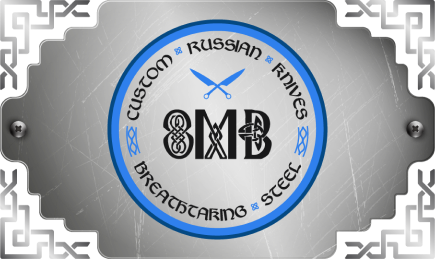It appears that your cart is currently empty

CONTACT Alex
We accept payments via:
Search
Knife user safety manual
- Use knife only as a cutting tool. Do not use it as a chisel or screwdriver, since the angle of sharpening of the cutting edge is 15-20 degrees. This can lead to the failure of the product before its natural service life.
- Do not throw a knife, because it is not intended for this purpose. Handle may crack, or the blade may break. For this, there are special throwing products. Even hitting the target with the blade does not guarantee that its tip will not break. In addition, the tip can bend or brake if the knife is not removed correctly.
- Knife must be always well sharpened. Verify it, since using a blunt knife is difficult, inconvenient and exhausting. It is also unsafe, because the likelihood of accidentally cutting or injuring another person with a blunt product is higher than with a sharp one (as paradoxical as it sounds at first glance).
- It is better to sharpen the knife blade slightly than wait until it becomes dull. It is less labor intensive, saves time and effort. In addition, if the blade becomes very dull, sharpening may be necessary using special tools and a specialist, and therefore become costly in terms of money.
- Do not sharpen blade on an abrasive disc. The high speed of such a disc heats up the blade by considerable amount, while the rest of the blade stays at normal temperature. This creates a destructive temperature difference and negatively affects the properties of the steel from which the blade is made.
- Knife must be kept not only constantly sharp, but also clean. In order to protect it from corrosion, it is necessary to wash it after work, wipe it dry, but do not put it immediately in the cover, let it lie in the air so that the remaining moisture evaporates. Then lubricate with technical oil. If the handle is dirty, the knife may slip out of your hands. A greasy, dirty handle made of wood or birch bark can be easily cleaned with turpentine. It is recommended to periodically soak the handle with linseed oil, etc.
- For folding knives, keeping them clean is one of the main prerequisites for stable operation, as contamination can prevent this. It needs to be lubricated periodically with technical oil. Lubrication has its own nuances. An excessive amount of oil or other lubricant in the mechanism can, on the contrary, clog it. Grease can adhere to hairs, dust, dirt and make it difficult to work or even completely block the folding knife, so that it becomes unusable.
- Do not disassemble the product, either of a conventional design or folding. Lack of knowledge of the rules of assembly and disassembly can lead to damage and cancellation of the warranty. If it becomes necessary, it is better to contact a specialized company.
- Use a knife with great care. It is a misconception that you can control working with a sharp object no matter what happens. Anything can happen. You should not check the sharpness of the blade on your own hand by cutting hairs, as many do, it is extremely dangerous. When transferring the knife to another person, you need to feed the handle forward, holding the blade by the butt. All the time during which the product is not in use, it must be in the case.
